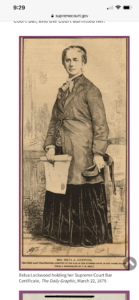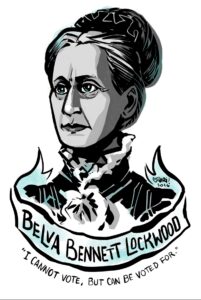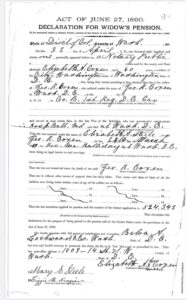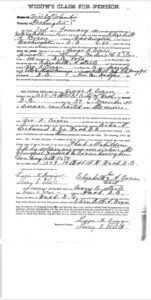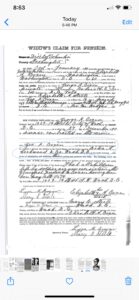With February’s annual commemoration of Black History Month and Women’s History Month in March, now seems an ideal time to share these recent activities and some discoveries.
As chair of the Bucks County Bar Association’s Mandatory Continued Legal Education Committee (MCLE), my duties include interaction with other committee chairs and coordinating programs of value to our membership and to educate the public.
Having read and studied recent issues brought to the forefront of our national conscience, I have come to some appreciation of the depths to which my own experiences have been in many ways formed, as well as almost embarrassingly insulated. This recently determined me to seek out and join the Bucks County Bar Association’s Diversity and Inclusion Committee.
The Diversity and Inclusion Committee consists of a fine group of lawyers, whose mission is to promote inclusion. Diversity is not a zero sum. It is not to the exclusion of any, but rather to promote all. Gaining a firmer understanding inspired me to join their committee. The research which follows helps bring to light a fascinating and exciting personal discovery, and causes me to look for ways to overcome my own biases as well as prejudices to help contribute to my profession? My community? My Nation?
In the Diversity Committee’s efforts to recognize and celebrate February’s Black History month, we highlighted Samuel Lowery. Lowery had been born into slavery, and his mother was Cherokee. In 1849, he successfully purchased his family’s freedom. He later served in the Civil War, was a preacher and a lawyer. Later in his life, he became a prominent member of the silk manufacturing industry. At this later stage of his life he also traveled to Boston for meetings with Booker T. Washington. Those meetings later help found what became known as the National Negro Business League. On February 2, 1880, Lowery became the first African-American attorney to argue a case before the United States Supreme Court.
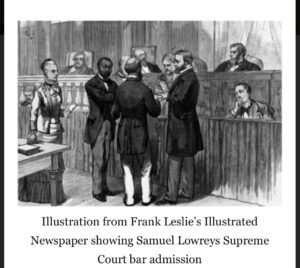 This period illustration from Frank Leslie’s Illustrated Newspaper, shows Lowery’s Supreme Court bar admission. The woman pictured standing toward the left, with hand determinedly placed on the table, is Belva Ann Lockwood. Lockwood was the first female attorney ever to appear to the Bar of the United States Supreme Court. A trailblazer in her own right, it was she who sponsored Lowery’s appearance before our nation’s highest court.
This period illustration from Frank Leslie’s Illustrated Newspaper, shows Lowery’s Supreme Court bar admission. The woman pictured standing toward the left, with hand determinedly placed on the table, is Belva Ann Lockwood. Lockwood was the first female attorney ever to appear to the Bar of the United States Supreme Court. A trailblazer in her own right, it was she who sponsored Lowery’s appearance before our nation’s highest court.
Lockwood’s story is also compelling. On February 15, 1879, President Rutherford Hayes had signed a law which would permit women to be admitted as members of the Supreme Court Bar. This law, passed thanks to the lobbying efforts by female attorneys, led by Belva Lockwood, cleared the way for her to become the first female attorney ever to argue a case before the United States Supreme Court. Three years earlier, her admission had been denied, but in 1879, she was sworn in amidst “a bating of breath and craning of necks.”
Lockwood also ran for President of the United States two times, each time on the “National Equal Rights Party” ticket. Her motto: “I cannot vote, but can be voted for.”
It comes as no surprise that late Supreme Court Justice Ruther Bader Ginsburg was a fan of Lockwood’s. RBG contributed the foreword to historian Jill Norgren’s 2007 book, Belva Lockwood: The Woman Who Would Be President. During a 2008 Supreme Court Fellows dinner speech, Ginsburg spoke in honor of Lockwood. I also recall reading that RBG had prominently displayed a picture of a replica of the court’s refusal to admit Lockwood along with some satirical time-period cartoons, as a reminder of the discriminatory obstacles faced.
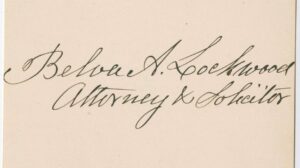 Throughout her legal career, Lockwood represented hundreds of Civil War pension applicants, including many widows of veterans who needed the pension money to help support themselves and their families. This aspect of Lockwood’s professional life brings us to my family’s connection to Belva Lockwood. My father’s great-grandmother was a lady by the name of Elizabeth Coxen. Her husband, a Civil War Union veteran, had been denied a disability pension during his lifetime. Following his death, Elizabeth applied for a Widow’s Pension, which eventually was awarded. Her attorney, whose signature you can see appears on the application, is none other than Belva Lockwood.
Throughout her legal career, Lockwood represented hundreds of Civil War pension applicants, including many widows of veterans who needed the pension money to help support themselves and their families. This aspect of Lockwood’s professional life brings us to my family’s connection to Belva Lockwood. My father’s great-grandmother was a lady by the name of Elizabeth Coxen. Her husband, a Civil War Union veteran, had been denied a disability pension during his lifetime. Following his death, Elizabeth applied for a Widow’s Pension, which eventually was awarded. Her attorney, whose signature you can see appears on the application, is none other than Belva Lockwood.

Richard Howard, Jr. is one of the most respected, dedicated and hard-working litigation attorneys in Bucks County. As a trusted advocate and counsel for his clients, Rick draws upon his strong judgment, undaunted work ethic, and over 25 years’ experience handling wide varieties of challenging and simple civil litigation matters, to effectively handle each client’s most difficult legal matters in today’s world. Rick prides himself on getting to the “real issue,” in truly relating to each situation, and doing what is “right” for his clients and in accordance with the Golden Rule.
This article is designed for general information only. The information presented should not be construed to be formal legal advice nor the formation of a lawyer/client relationship.
